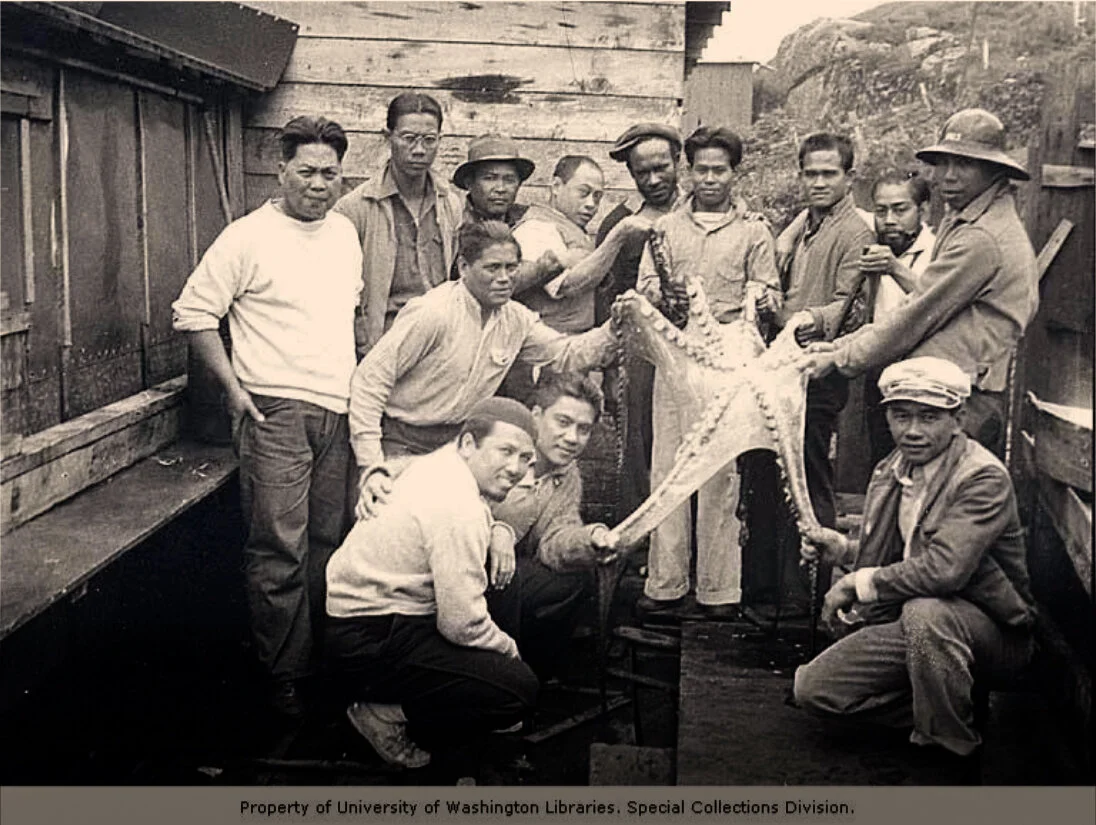Alaskeros
Empowerment, organization, and change
Archipelago is an exploration of a region’s identity—a personal journey to reveal a wealth of resonance in our diverse community. We do not look at our produce, meats, and seafood as a product of a place solely defined by where it sits in the world, nor the season you’ve found yourself in—but as it has always been, by the landscape of its people.
In this landscape of the Pacific Northwest, one group has been impacting this region for decades— the Alaskeros.
The United States took possession of the Philippines in 1898 and in the decades after that, Filipinos, began to make their way to the U.S. to seek employment, especially in the fields and canneries. The center for many of the Filipino immigrants was Seattle. There, Filipinos found work through the contract system and would find themselves in the canneries in Alaska or the vast farmlands of Yakima Valley in Eastern WA.
Since the Philippines was a commonwealth of the U.S. Filipinos during this time were U.S. nationals and had privileges that other Asians did not, like being able to travel to the U.S. freely. Because of this, Filipinos were surprised to find that despite their status, they were still treated as inferior. Once hired onto these contract jobs, Filipino faced incredible discrimination and exploitation in both the canneries and on the farms.
This led to the very first Filipino-led union ever organized in the United States: the Cannery Workers’ and Farm Labors’ Union Local 18257. Based in Seattle, it was organized by the “Alaskeros” who worked in the Alaska salmon canneries each summer and in the harvest fields of Washington, Oregon, and California in the other seasons. By 1937, CWFLU had integrated with the United Cannery, Agricultural, Packinghouse, and Allied Workers of America (UCAPAW) under the Congress of Industrial Organizations(CIO), becoming UCAPAWA-CIO Local 7, turning into Local 37 of the International Longshoremen and Warehousemen Union (ILWU) by the summer of 1950.
Today the unions are still going strong and many of those who worked in the fields were able to purchase land, setting the foundation for the many thriving Filipino family-run farms in Eastern Washington. The Alaskeros have shown us that the Pacific Northwest is truly a reflection of the people who push it forward.
At Archipelago, we pay homage to this legacy by focusing on the culinary concepts in our culture that highlight pure examples of the land and see notably through our more raw preparations of kinilaw and kilawin.
sources: http://fanhs-national.org/filam/, http://depts.washington.edu/civilr/cwflu.htm

